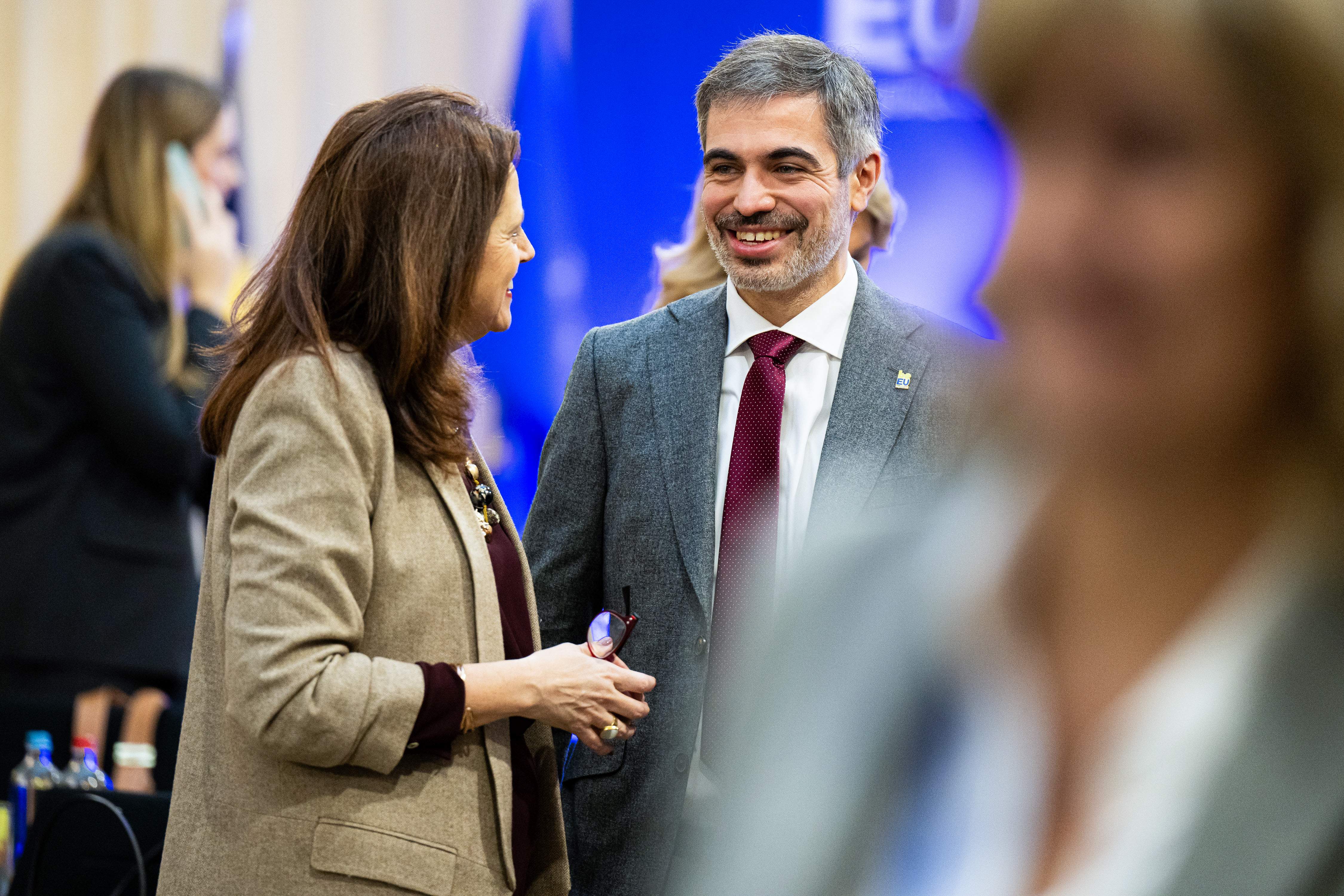Last chance lost. The General Affairs Council of the European Union, the arena in which the official status of the Catalan language is debated, held another ordinary meeting on Tuesday. But it was not an ordinary meeting, because this was the last meeting of the body under Belgian authority. After six months in which Belgium has held the presidency of the Council, as from July 1st it will be Hungary's turn. They will be able to prioritise what issues are put on the European table over the next six months, that is to say, the remainder of 2024. Hence, all eyes in Catalonia were ¡focused on whether the Spanish government would announce any new developments to make Catalan, Basque and Galician official in the EU, or whether it would take this point to a vote.
Nothing could be further from the truth: today's General Affairs Council meeting did not discuss this issue. The agenda was already predictable, as there were only five items on it: the Ukraine war, security and defence in Europe, the EU's economic competitiveness, foreign policy and the situation in the Middle East, and the next institutional cycle. There was no mention of the Catalan language, which did not make an extraordinary appearance either.
This is exactly the same situation that occurred exactly one week ago. Last Tuesday, the General Affairs Council of the European Union held its penultimate meeting under the Belgian presidency, and Catalan language was not on the agenda either. It was, however, an extraordinary meeting, focused on cohesion issues, according to sources in the Council of the European Union, as reported to ElNacional.cat. Today's meeting was the one where the language issue could have been formally addressed, but it was not. The Spanish government has thus missed a new opportunity. Since mid-March, when José Manuel Albares, Spanish Minister of Foreign Affairs, sent new arguments to convince the European states, no visible progress in making Catalan official has been made. However, the Spanish government has already initiated contacts with Hungary so that this issue can be addressed over the next six months, after the central European country had refused to put it on the table for the time being.
Six months lost under Belgian presidency
The handover of the baton worries language activists who want to make Catalan, Basque and Galician official EU languages. When the presidency of the Council of the European Union passed from Spain to Belgium, there was a certain optimism because the Belgian ambassador to Spain, Geert Cockx, assured from Barcelona that his country had the will to move forward with the promotion of European linguistic diversity. At the time, however, he also stressed that the EU had to clarify 'the financial and legal consequences' of taking this step, and had stressed the need to have 'the pending reports'.

